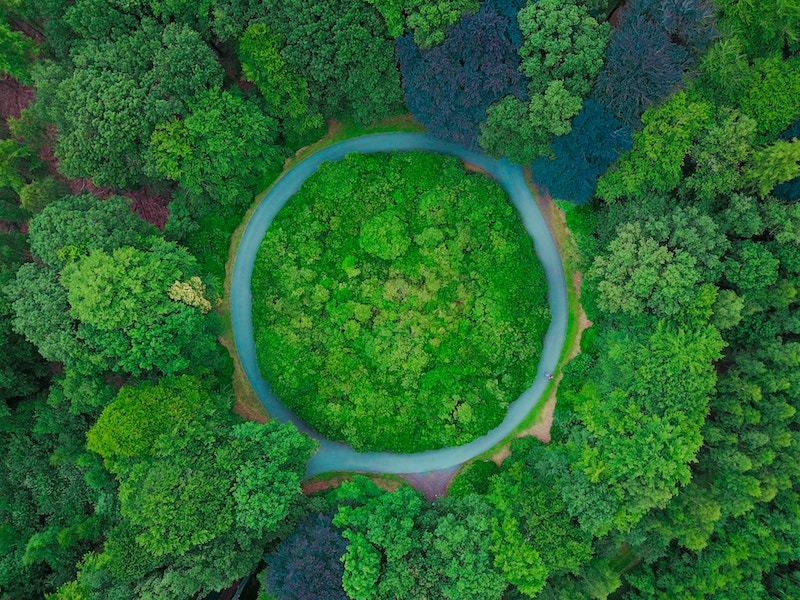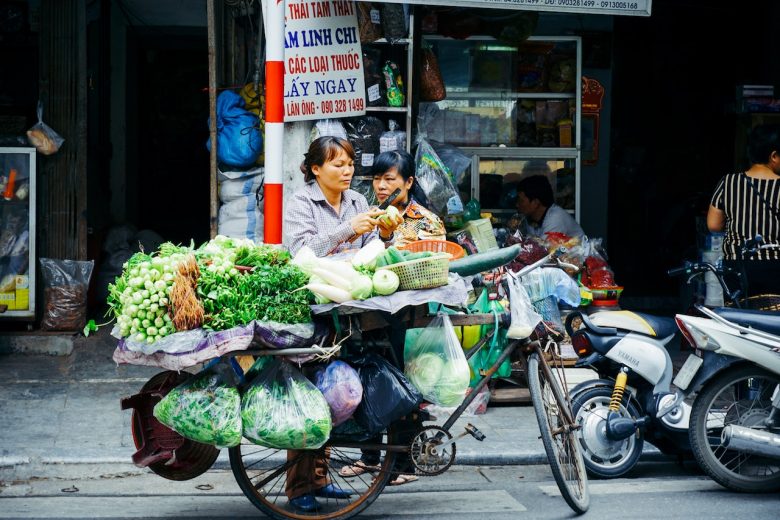
When you visit somewhere new, here’s how you can do your best to support the environment, the community and the economy in a sustainable way.
You want to come home with memories, knowledge and happiness but leave the place you visited unharmed and impacted only in a positive way by your visit.
With sustainable travel gaining more attention each year, you might be wondering how you can reconcile travelling the world with being a good “green” citizen. Responsible travel doesn’t just refer to the environment. While that does of course form a large part of responsible travel, it’s also important to consider the impact of your travels on the community at large. So next time you jet off to somewhere exotic, here’s how you can do your bit to make sure that your travels make the world a little bit better for those who remain and those who are still to come.
1. Support local businesses

By spending your money with locally owned small businesses, you’re helping to empower the local communities and giving them a helping hand on the way to economic growth. There are so many ways to do this. For instance, you can think about staying at an Airbnb or guesthouse rather than a large hotel. Or, buy your fruit and veggies from the local farm market or roadside stand rather than from the supermarket. Eat at cafes, food stands and locally-owned restaurants rather than chain places. Take home a souvenir from an artist, sculptor or local craftsman instead of one from the airport or a big shop. You can bargain if that is the local custom, but try to pay a fair price and respect the livelihoods of those who are selling you the goods.
You don’t have to make big sacrifices, but try to be conscious of where and to whom your money is going.
Also read:
2. Reduce your environmental impact

As we should do even in our home countries, a responsible traveller makes an effort to be friendly to the environment. Travel with a BPA-free or glass water bottle if the water is drinkable, rather than buying plastic water bottles regularly. We can also learn a great lesson from Cape Town here – conserve water (and not just in times of drought) by taking short showers, closing the tap when you’re brushing your teeth and reusing the towels and sheets at your accommodation rather than having them washed every day.
Make sure that you are respectful of wildlife, fauna and flora. If you’re hiking, clean up your rubbish and only access areas of the park or area that are open to visitors. Try to take shared transport like a bus or train instead of a taxi or private car where possible.
If you’re very serious about reducing your carbon footprint (after all, that plane ride probably left quite a big one!) then you can also look into local “green” accommodation. While this won’t be an option everywhere, everyone from backpackers to luxury lodges are now starting to offer greener options – solar panels, natural building materials and so on. It’s certainly worth having a look when you’re pondering accommodation choices!
3. Consider welfare issues
Sure, you can ride elephants and ostriches across the world. You can also eat local delicacies like shark fin soup. Before you do that though, take some time to do your research and consider whether these attractions and “must do’s” are actually ethical practices and whether you are comfortable with it. If not, move along. Anything that seems to exploit animals or people for the benefit of tourists is a big no-no. It’s important to be aware as even some orphanages and similar can be more sinister than you would expect, and a lot of these kids aren’t even orphans. In fact, families are being forced to send their kids away or tricked into believing that their children should be sent to the “orphanage” for a better life and more opportunities. This is a very real problem in Southeast Asia specifically, with Cambodia being one of the more well-known hubs for ‘orphanage tourism’ scams.
4. Do your research

Of course, part of the fun of travelling to a new area or country is getting to experience things first hand. No matter how much you read, you can never be fully prepared for how travel will expose you to new things, new people and new cultures. However, it is your responsibility to do some researching beforehand in terms of local customs. If you’re going to a very conservative country for instance, find out whether public displays of affection are frowned upon. Try to discover how the local people greet each other and any unusual customs to avoid committing a big social faux pas. Generally, a little bit of effort from your side will go a long way to having the locals welcome you with open arms.
5. Help from home
Once you get back, think about how you can help the communities you visited. Perhaps you can donate to a local outreach programme or an organisation that builds schools. If you don’t have the means to provide monetary assistance, maybe you have skills you can put to use by offering a helping hand with social media advertising or fixing up their website? And at the very least, leave good reviews online about your positive experiences and spread the word to your friends and family – who knows, when they go perhaps they’ll be able to offer their own kind of help.
6. Leave only footprints

All in all, this should be the aim of all your travels. You want to come home with memories, knowledge and happiness but leave the place you visited unharmed and impacted only in a positive way by your visit. Some ways to do that:
-
-
- Dispose of your waste properly and recycle where possible. Don’t litter.
- If you’re hiking or camping, use biodegradable soaps and only do laundry, bathing or dishes away from natural rivers and lakes
- Leave things where you find them. Don’t disturb natural habitats – if you’re in the bush, for instance, stick to the tracks provided. If you’re in a national park, don’t stomp over the flora and fauna to get to a picnic spot. Wherever possible, leave things undisturbed.
-
Great ideas, thank you!